The Complete Guide to Studying Canadian Pre-University in Malaysia
What is Canadian Pre-U and where can you study the course in Malaysia? From syllabus and pathway to requirement, here's everything to know about CPU.
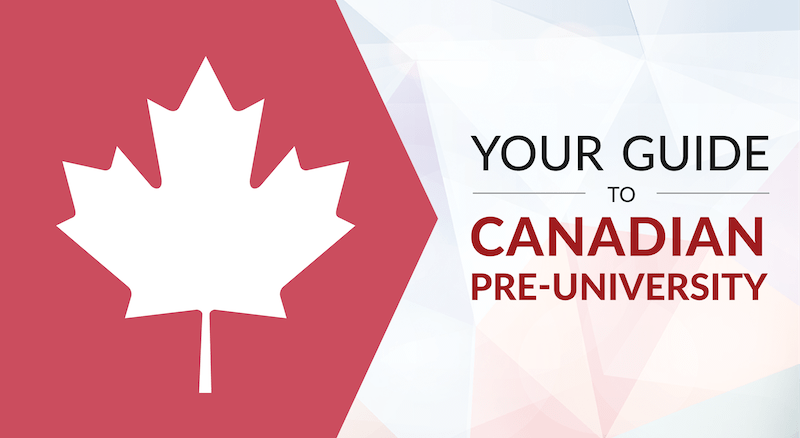
Canadian Pre-University (CPU) is one of the many pre-university programmes offered by colleges in Malaysia, in addition to other courses like A-Level and Australian Matriculation.
What are the key advantages of this programme compared to the other courses?
This guide will explain everything that you need to know about the CPU programme, from course structure and key benefits, all the way to the best colleges to study this course.
#1. The Basics of Canadian Pre-University
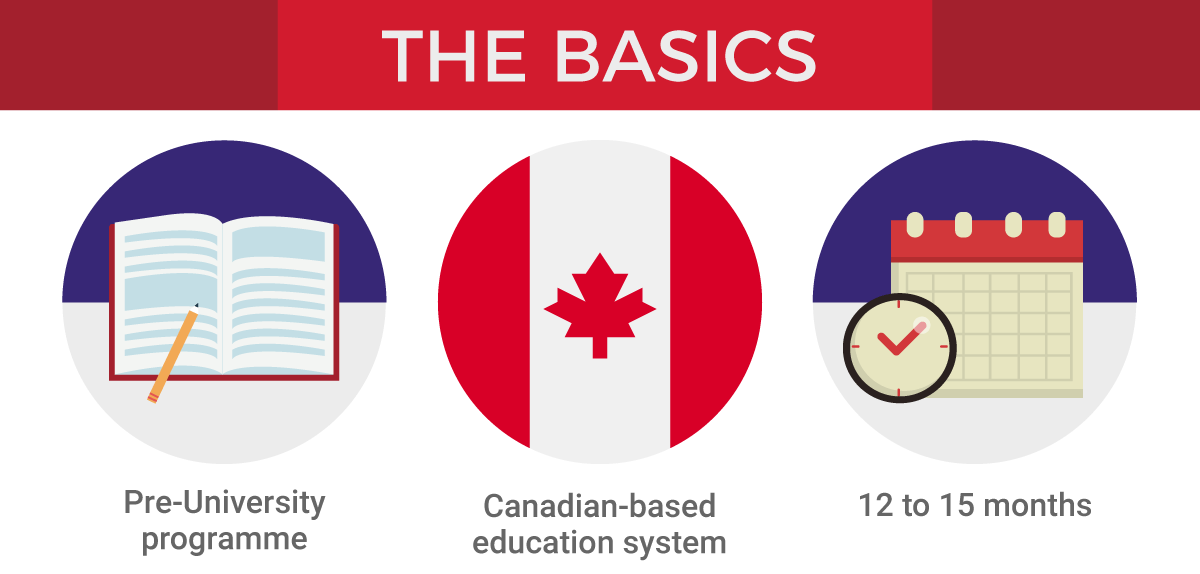
a) What It Is
The Canadian Pre-University programme is a Pre-University programme for students who have completed SPM, O-Levels or equivalent. This means that you take this course before pursuing a degree at university (hence, the word pre).
There are two primary programmes offered in Malaysia - Canadian Pre-University (CPU) and CIMP (Canadian International Matriculation Programme).
Both CPU and CIMP are the same and leads to an Ontario Secondary School Diploma (OSSD), which is awarded to Canadian students who successfully complete 12th Grade in high school.
The programme is 12 – 15 months long and will require you to take 6 subjects, where you will be graded on a combination of coursework and final exams. To study the Canadian Pre-University programme, you will need to meet the minimum requirement of 5 credits at SPM or equivalent.
#2. How is CPU Structured?
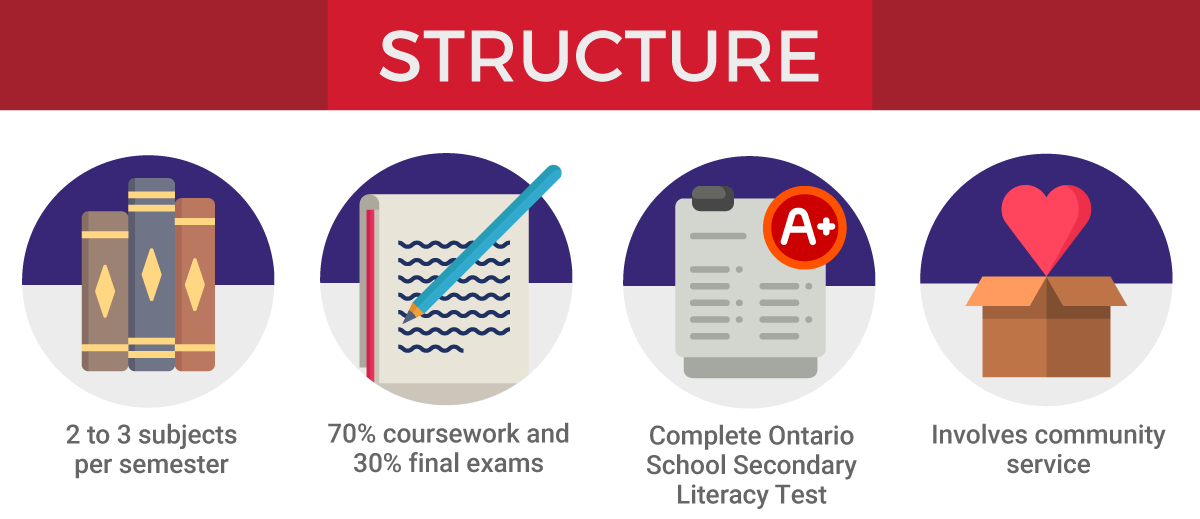
You will be required to take 6 subjects in total, including English.
Subjects are delivered on a modular basis, which means that you will study and complete several subjects in one semester before moving on to take another set of subjects in the following semester. Typically, you will take 2-3 subjects per semester, although you will have the flexibility to decide how many subjects you would like to take.
Most subjects have a combination of 70% coursework + 30% final exams. As such, you will need to be on top of your homework, assignments and projects throughout the year.
In addition, you will also need to:
- Complete the Ontario School Secondary Literacy Test (OSSLT)
- Complete a number of approved hours of Community Service

a) What Can You Expect for CPU’s Coursework?
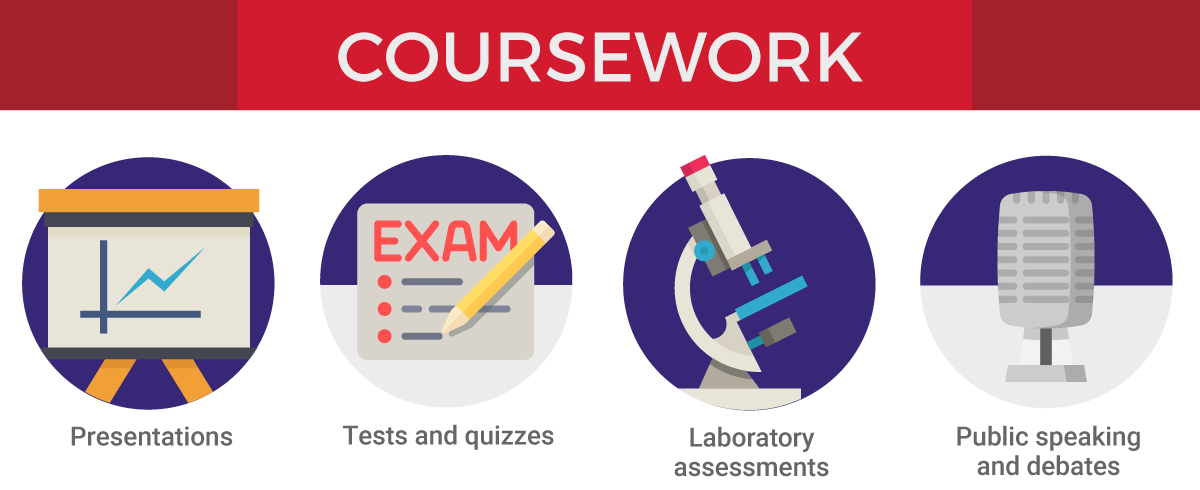
Canadian Pre-University focuses on real world application, such as presentations and collaborative projects, in order to develop communication and interpersonal skills.
Here are some examples:
- English – Expect essays, presentations and projects
- Mathematics – Tests, quizzes and presentations
- Business – Presentations, debates, research papers, projects such as creating a mock product
- Sciences – Requires you to do lab (reports and practical) work
b) How Will You Be Graded?
Unlike the Australian Matriculation programme, you will not be graded "on a curve" or based on other students' performance.
Instead, you will be graded on a criterion-based assessment using the Ontario Rubric:
- Knowledge/Understanding: Understanding of subject-specific content
- Thinking/Inquiry: Critical thinking and problem solving skills
- Communication: Communicating or presentation of information
- Application: Applying knowledge and skills to different contexts
Your final results will be an average percentage across all 6 subjects taken, where the maximum score will be 100%.
#3. Why Should You Take CPU?
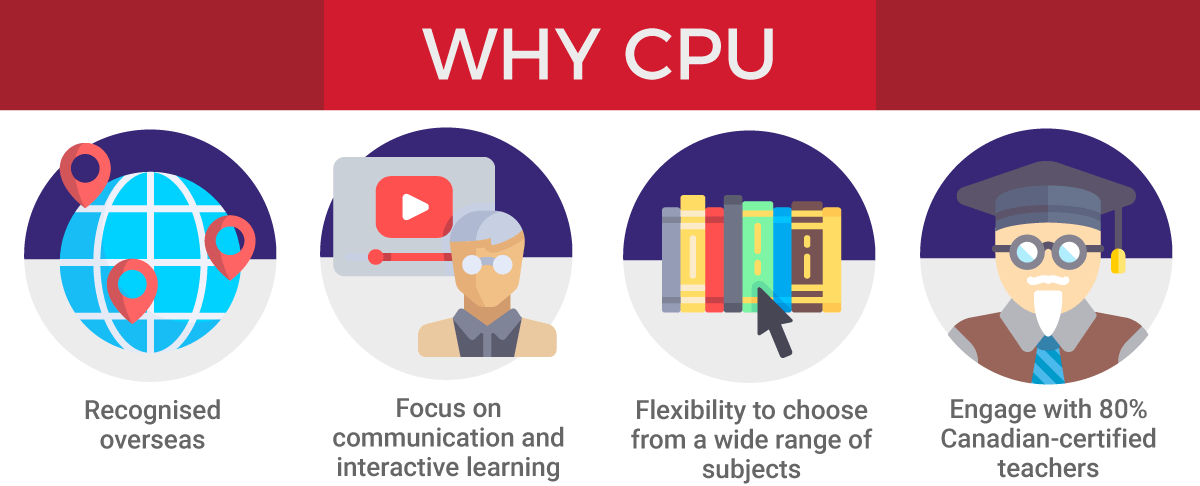
Even though you are not planning to head to Canada for your university degree, there are many great reasons why you can still consider CPU as a pre-university programme.
(a) CPU is recognised by many universities abroad
CPU (or the Ontario Secondary School Diploma) is a well-recognised qualification worldwide, with many students successfully gaining entry into universities in Canada, Australia, New Zealand, USA and UK. Many local private institutions also accept CPU, so you definitely don't have to worry about having an unrecognised qualification.
(b) Focus on communication and interactive learning
While courses like A-Level tend to focus on exams, CPU has a more holistic approach, encouraging you to demonstrate subject competency not just through exams, but also communication and real world application via projects, debates and presentations. Classes are very focused on classroom interaction, where you are encouraged to discuss and debate with your lecturers.
(c) Flexibility to choose from a wide range of subjects
One defining feature of the CPU programme is the wide range of subject options, with some colleges offering up to 20+ subject choices! From Dramatic Arts and The Writer's Craft to Exercise Science and Communications Technology, you will find yourself spoiled for choice.
(d) Engaging learning environment with 80% Canadian-certified teachers
As part of the CPU course, 80% of the CPU faculty at most colleges are Canadian-certified lecturers. These lecturers are specifically trained to create engaging learning environments, challenging you to be dynamic and creative so that you are truly involved in the subjects that you are learning.

#4. Who is CPU For?
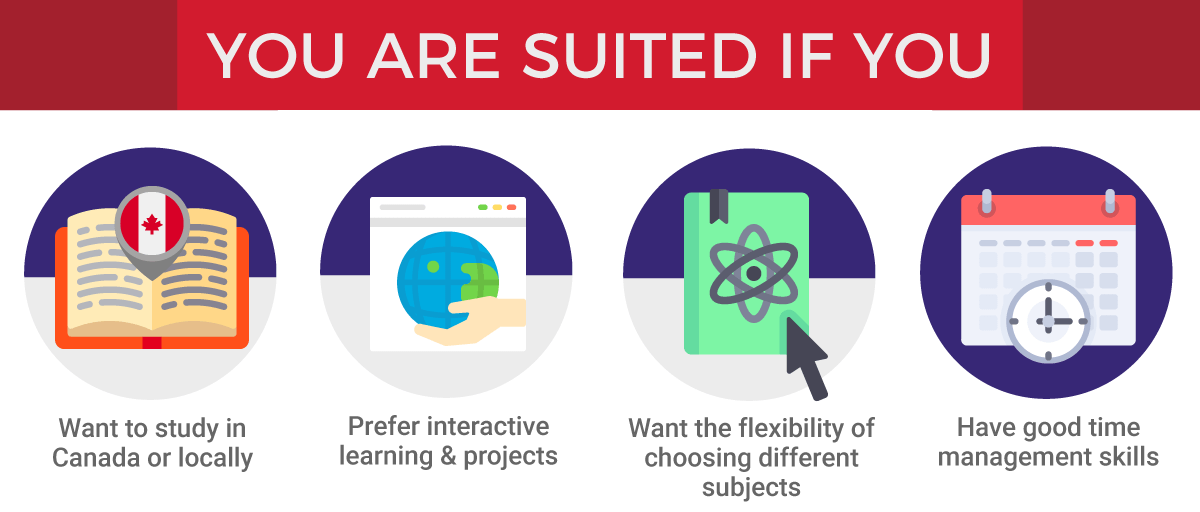
(a) You should consider taking CPU if:
- You have great time management skills and are able to handle various projects and assignments
- You love speaking and presentations, interacting with your peers and teachers, and working on group assignments instead of final exams
- You enjoy the flexibility of choosing different subjects from different fields
- You are looking to study overseas (especially in Canada) or at local private universities
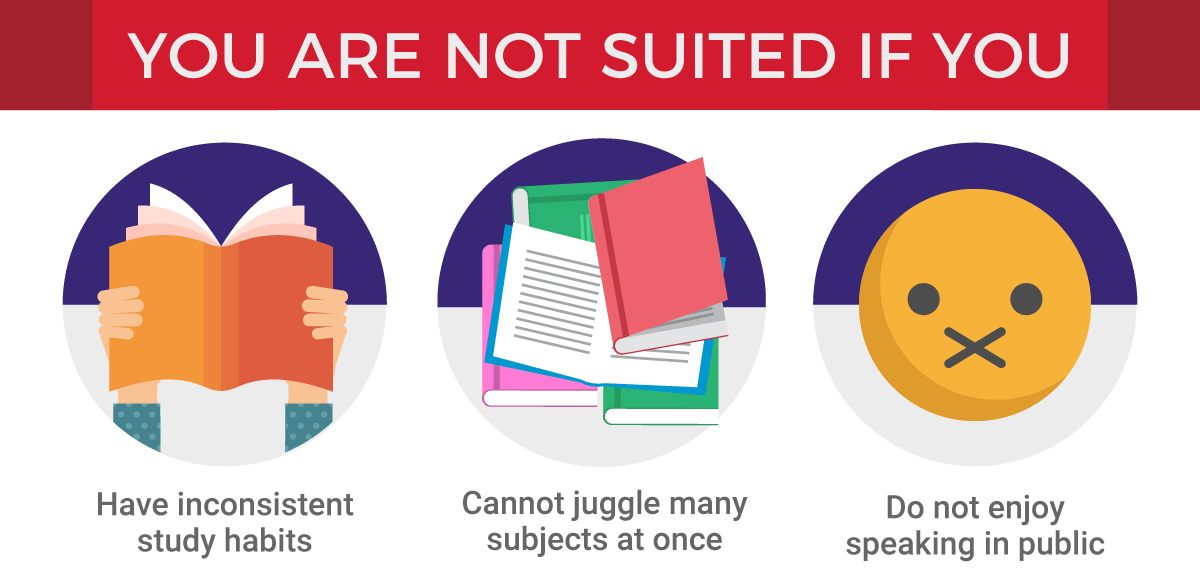
(b) You should NOT take CPU if:
- Your study habits are inconsistent, and you tend to leave everything to the last minute
- You need time to master your learning material, and juggling assignments, projects and tests all at the same time is not your strength
- Your command in English is weak and you do not enjoy speaking in public or interacting with your peers
#5. What Subjects Should You Choose For CPU?
Most colleges that offer the CPU programme will allow you to get into various fields, including Business, Finance, Accounting, Engineering and Science.
While CPU gives you the opportunity to pursue some of your passions with subjects like Dance and The Writer's Craft, do make sure you that you choose several essential subjects that will allow you to pursue the degree of your choice later on.
Here is a rough guide of recommended subjects by degrees.
| Degree | Recommended Subjects |
|---|---|
| Accounting, Business, Economics, Finance | Essential: English 4U/English 4C, Business Leadership, Financial Accounting Principles Recommended: Advanced Functions,Mathematics Data Management,Calculus & Vectors |
| Actuarial Science | Essential: English 4U/English 4C, Advanced Functions, Calculus & Vectors, Analysing Current Economic Issues, Mathematics Data Management Recommended: Computer Science |
| Biochemistry, Biomedical Science, Nutrition | Essential: English 4U/English 4C, Chemistry, Biology, Physics, Mathematics Recommended: Exercise Science |
| Engineering | Essential: English 4U/English 4C, Physics, Advanced Functions, Calculus & Vector, Chemistry Recommended: Earth & Space, Computer Science |
| Humanities, Mass Communication | Essential: English 4U/English 4C, Challenge & Change in Society, Media Arts , Writer's Craft Recommended: Canadian World Issues, World History |
| Information Technology | Essential: English 4U/English 4C, Advanced Functions, Calculus & Vectors Recommended: Mathematics Data Management, Media Arts |
| Medicine, Dentistry & Pharmacy | Essential: English 4U/English 4C, Chemistry, Biology, Physics, Mathematics Recommended: Exercise Science |


